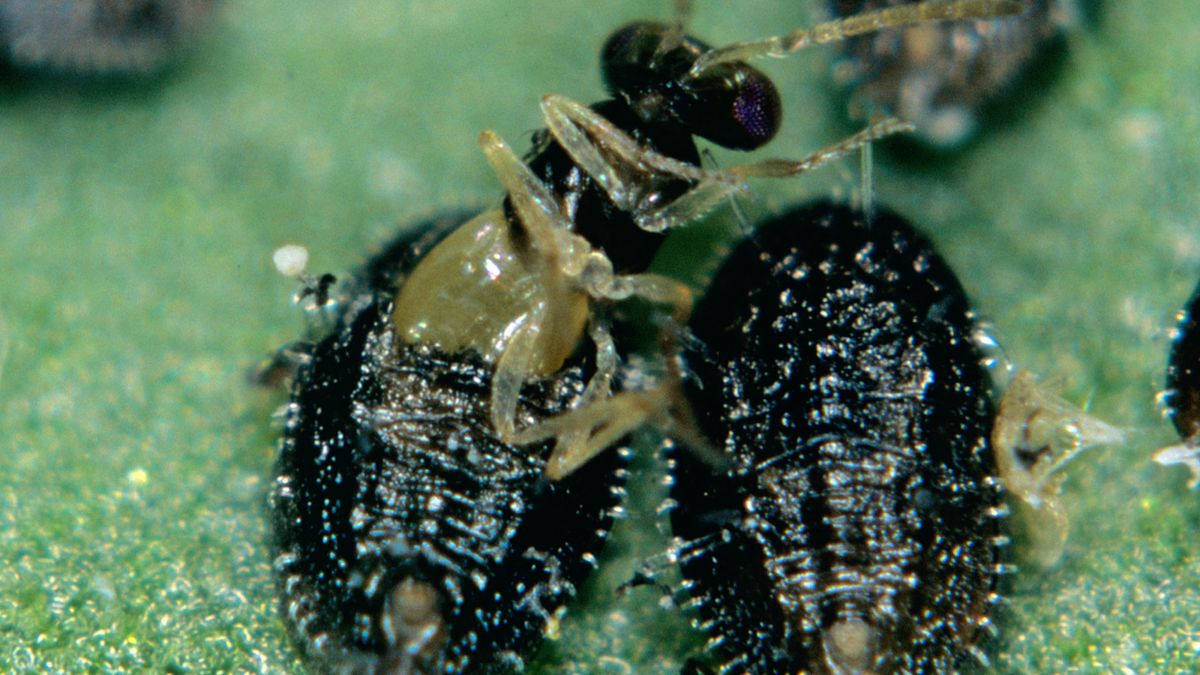Bacteria that live in parasitic wasps eliminate all male wasps from the population. Now, scientists have discovered one way to do it.
Long ago, bacteria borrowed sex-determining genes from other insects, and now use them to secrete proteins that change male eggs, a study published in March in the journal. Genome Biology found.
“When we first identified this female element in the bacterial genome, we were very happy: this protein explained many aspects of how the bacterium was able to ensure all female wasps,” learns the senior author . Amelia Lindseyentomologist at the University of Minnesota, told Live Science in an email.
bacteria, Wolbachia, lives in the cells of insects and can only be transmitted directly from parent to offspring through female eggs and not through sperm. Therefore, they benefit from the majority of the female population. When scientists discovered Wolbachia that lives in the flesh of an insect 100 years agoand they found they were able to skew the sex division of insects around 30 years agothey are only now beginning to understand how bacteria control pathogens to promote infection.
Related: Newly discovered fungi turn flies into zombies and devour them from the inside
This manipulation can have amazing results. For example, when researchers in Samoa looked at the number of infected people Hypolimnas Bowline butterflies, they found them 100 female for every malethank you to this person who walks in the microscope.
Over the years, scientists have discovered that Wolbachia rely on a vast array of tactics to increase the ratio of females to the population, including killing male embryos and preventing the development of infertile eggs. Wolbachia, and making genetic males have female characteristics instead.
“Microbes have developed very sophisticated mechanisms to manipulate their hosts,” Hiroshi Araiwho studies insect evolution at the University of Liverpool in the UK but is not directly involved in researchhe told Live Science via email.
However, one of the important ways Wolbachia it ensures that the number of all females is done by controlling reproduction to produce only female offspring without the need for male fertilization.
Wasps of different sexes have different numbers of chromosomes. Males have only one set of chromosomes, so one copy of each gene. They arise from unfertilized eggs. Meanwhile, females have two copies of each gene and develop from embryos.
Normally during reproduction, the chromosomes are duplicated and then split into separate cells, leaving the daughter cells with half the number of chromosomes of the parent cells.. Using methods that scientists still do not fully understand, Wolbachia it somehow prevents that last step, which causes females to develop from unfertilized eggs that would otherwise have developed into males. As a result, all wasps will carry and pass the bacteria to their offspring.
“Wolbachia it is reduced to controlling the will of the recipient of sex, but instead becomes an integral part of it,” Tobias Engl, leader of the insect symbiosis project at the Max Planck Institute for Chemical Biology in Germany, told Live Science. Engl was not involved in both courses.
But exactly how Wolbachia sexual coercion remained a secret.
New research answers part of that question.
The second study, published in June in the journal Current Biology find that it is hidden inside the DNA of Wolbachia it is a gene that appears to have originated in insects, not bacteria. This gene produces a protein that appears to play an important role in sex determination.
“It was exciting to see work from Dr. Luan’s group that didn’t come across a single protein that is responsible for insects developing into females,” Lindsey told Live Science. .
Both studies found that the proteins produced by the two genes are very similar to genes found in other insects.
This suggests that genes Wolbachia it uses to eliminate the male lends another insect that has infected deeply in its evolutionary history.
Wolbachia they already are which is used to reduce the number of insects that carry diseases such as malaria, dengue fever and Zika fever. And parasitic wasps, Encarsia formosa, It is used to eliminate whitefly, an agricultural pest. Research that provides a greater understanding of how Wolbachia controlling the population of insects can improve the development of these projects, Arai told Live Science.
#bacteria #sex #change #wasps #scientists #finally

